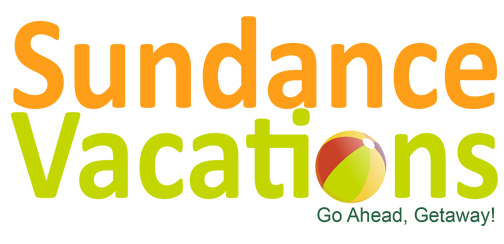In an effort to help keep airline tickets affordable and enhance the overall travel experience, there is a movement afoot to create a National Airline Policy.
A chief proponent of such a policy is Gary Kelly, chairman, president and CEO of Southwest Airlines. Kelly firmly believes there are a number of components that should be addressed when formulating a National Airline Policy. First and foremost, He wants more transparency when it comes to taxes and fees that are added to the cost of airline tickets.
Like Kelly, John and Tina Dowd, co-founders of Sundance Vacations, a wholesale vacation company headquartered in Wilkes-Barre, Pennsylvania, also support a National Airline Policy, especially since it would benefit their clients and potential clients who utilize air travel to get to various destinations.
You might be surprised to learn that airline taxes and fees amount to 20 to 30 percent of the cost of a round-trip domestic airline ticket.
As an example, let’s start with a base airfare of $200 for a connecting flight with one stop. Now, add the following:
- Base airfare – $200
- Federal Excise Tax (7.5 percent) – $15.00
- Flight Segment Tax – $14.00
- Passenger Facility Charge (PFC) – $18.00
- September 11 Security Fee – $10.00
Total airfare: $200. Total airline taxes and fees: $57.80. Total ticket price: $257.80.
The taxes and fees represent 28.9 percent of your ticket cost, which is nearly 30 percent. But there also are other fees associated with air travel checked bag fees, carry-on bag fees, etc.
In addressing the added expense of air travel, Kelly said “You might be surprised to learn that taxes and fees amount to 20 to 30 percent of a typical round-trip domestic ticket. That’s higher than taxes on products like alcohol, tobacco and firearms, the co-called ‘sin taxes’ that are designed to discourage use. We’re working to keep flying affordable and punitive taxes get in the way of that effort. “
Continuing, he said, “Revising the federal tax structure on air travel would allow airlines to better serve their customers.”
Kelly pointed out Airlines for America hopes to introduce legislation to Congress that will support a National Airline Policy. “Of course, the voices that speak the loudest to Congress are those of its constituents,” he emphasized.
You can play a critical role in helping ensure the success of the campaign by visiting www.nationalairlinepolicy.com to lend your support.
Sundance Vacations also supports the policy since it would go a long way in benefiting its clients who rely on air travel to get to Sundance resort destinations.
To recap, a breakdown on the four main taxes and/or fees is as follows:
Federal Ticket Tax: As noted above: this is a 7.5 percent excise tax on each ticket (collected by the airlines). It goes toward the government’s Airline and Airway Trust Fund, which support the Federal Aviation Administration and air traffic control.
Segment Tax: This tax is set at $3.70 and is charged per “flight segment,” meaning one take-off and landing. This money also is channeled to the Airport/Airway Trust Fund.
Passenger Facility Charge: Another “flight segment” tax and this one varies though it can cost as much as $4.50 per segment, but caps out at $18. It helps fund local airport projects.
September 11 Security Fee: This is only $2.50 per segment (it tops out at $10 per flight). It funds the Transportation Security Administration (TSA).
All of these taxes are levied on an airline ticket and are not paid for by the airlines – they are paid for by the passengers.
When it comes to airline taxes and fees, the Business Travel Coalition, an advocacy group for the “managed travel community,” made the following point:
“Under the 2012 Department of Transportation rule, airlines must prominently present total ticket prices in advertisements. However, they are permitted to display breakouts of government taxes and fees as long as they are less prominently displayed than the total ticket prices. Additionally, there is no DOT requirement preventing airlines from also including in advertisements the base ticket prices (net of government taxes and fees) if they are likewise displayed less prominently than total ticket prices. As such, and as a matter of fact, airlines are free today to provide consumers with a detailed breakdown of total ticket prices, including government taxes and fees.”
Advocates for transparency believe people should know what they’re paying for, especially when it comes to government services. The National Airline Policy, in part, will stipulate that airlines definitely should identify government taxes and fees associated with airfare costs.
For more information, updates, travel tips and news from Sundance Vacations, be sure to follow us on the following social media outlets:

